7 Medicinal Herbs for Your Garden
Medicinal herbs are another tool homesteaders can add to their self-sufficiency toolbox. Homesteaders who garden may want to include some of these herbs in their plans for future growing seasons.
Even if you’ve never gardened before, most of these herbs are easy to grow. Many of them complement other crops, making it convenient to squeeze them into your existing garden plans if you don’t want to wait for the next growing season.
Our family is a firm believer in the power of medicinal herbs. We include them when planning our yearly homestead garden based on our specific needs. Immune support and stress relievers top our list of the most popular choices for our garden.
We encourage all homesteaders to consider growing some medicinal herbs. If you need help getting started, then this blog is for you.
In this blog you’ll learn:
- What are medicinal herbs?
- What are some medicinal uses for herbs?
- What are 7 powerful medicinal herbs for your garden?
- What is the most popular medicinal herb?
- How do you grow medicinal herbs?
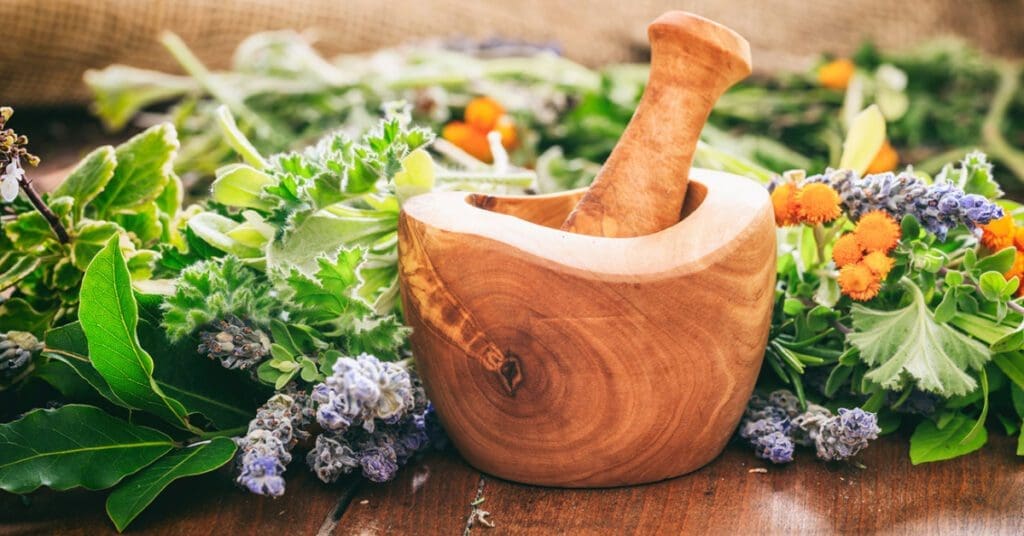
What are medicinal herbs?
Medicinal herbs are plants used for their therapeutic properties to cure, prevent, or treat medical conditions. You can trace their use back thousands of years in both holistic and traditional medicine practices around the world.
Using medicinal herbs doesn’t make you fringe. Roughly 40% of the drugs found behind your local pharmacist’s counter were derived from plants – including the top 20 best-selling prescription medications in the U.S. today.
Some of the most used medicinal herbs include:
- Chamomile for relaxation.
- Echinacea for immune support.
- Ginger for nausea.
- Ginkgo biloba for cognitive function.
What are some medicinal uses for herbs?
Medicinal herbs contain active compounds like alkaloids, flavonoids, and terpenoids that have pharmacological effects on the human body. You can use them in various forms, including capsules, extracts, ointments, teas, and tinctures.
Some of the most common uses for medicinal herbs include:
- Anxiety and stress relief. Ashwagandha, lemon balm, and valerian root are three herbs that naturally support calmness.
- Cognitive functioning. Need a little extra brain power? Ginkgo biloba and rosemary are two herbs that can boost your memory and ability to think more clearly.
- Digestive issues. Chamomile and ginger are two of the most popular natural treatments for digestive issues like bloating, indigestion, and nausea.
- Immune support. Many homesteaders turn to medicinal herbs like echinacea, elderberry, and garlic to support their immune systems and protect against infections and illnesses.
- Pain relief. Inflammation – which triggers a pain response – is our body’s way of letting us know we’ve overdone it. Some of the most effective herbal treatments for pain relief include devil’s claw, turmeric, and willow bark.
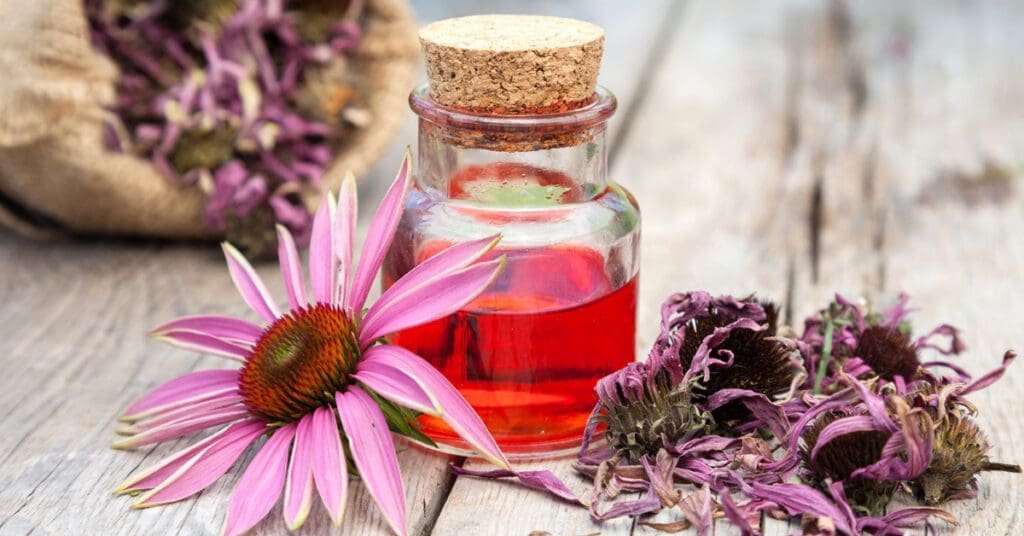
What are 7 powerful medicinal herbs for your garden?
Medicinal herbs are plentiful, and many of them can easily be grown in your homestead garden. If we had to pick 7 we’d recommend including (if you live in an environment that supports their healthy growth), these are the ones we’d recommend.
- Echinacea
You’ve probably seen plenty of over-the-counter medications touting this powerful medicinal herb as a main ingredient on the shelves of your local stores. It’s a prominent ingredient for good reasons. It boosts the immune system and reduces the severity of cold and flu symptoms. - Ginger
If you suffer from digestive issues or other gastrointestinal disorders, regularly consuming ginger can help reduce flare-ups. If you suffer from inflammatory conditions, ginger might provide relief for your symptoms. One of its primary uses is for treating urinary tract infections caused by inflammation. - Horseradish
You can include this spicy root in any meat dish for a complementary pairing. It requires a lot of space to grow, so make sure you give it plenty of space for future expansion. Besides making meat dishes tastier, you can use them to fight bronchial, sinus, and urinary tract infections. Its high sulfur levels and other bio compounds clear mucus and promote facial drainage. - Lavender
If stress and anxiety keep you awake at night, lavender promotes relaxation and encourages better sleep. Scientific studies support both its effectiveness for reducing feelings of anxiety and improving sleep. - Lemon Balm
If anxiety, insomnia, and stress plague you frequently, lemon balm can provide relief. Its antiviral properties also promote the healing of cold sores and other viral infections, so it’s worth growing in your homestead garden for its multiple benefits. - Sage
Sage’s antibacterial and antiviral properties place it among the most popular medicinal herbs for homestead gardens. It works wonders for sore throats and respiratory infections. You can make it into a tincture or chew on the leaves directly to reap the benefits. - Turmeric
Inflammation is not our friend. If you suffer from painful inflammatory conditions, turmeric might end up being your new best friend. It contains curcumin, a powerful anti-inflammatory compound that helps with pain relief and immune system support.
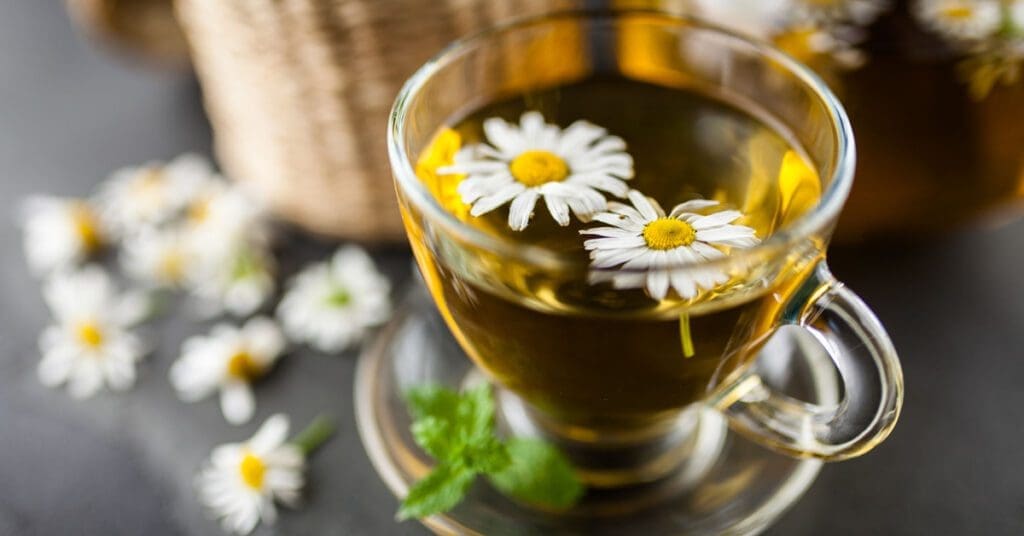
What is the most popular medicinal herb?
The popularity of medicinal herbs is subjective and depends heavily on the growing region and culture. However, one of the herbs that are widely used because of its medicinal properties is chamomile.
Used for centuries in traditional medicine practices in Europe and other parts of the world, chamomile has been proven to help digestive issues, improve sleep, and reduce anxiety.
You can find it as an active ingredient in many teas, supplements, and other natural personal care products. It’s gentle and safe for most people to use, which further boosts its popularity.
How do you grow medicinal herbs?
Growing medicinal herbs isn’t hard once you set your mind to it. Whether you’re an experienced homestead gardener or a newbie, it’s worth including them in your annual growing season. Here are some general tips on the most effective ways to grow medicinal herbs.
- Choose your herbs. Make sure the medicinal herbs you want to grow are suitable for your climate and other growing conditions. You’ll need well-drained soil that’s rich in organic matter to support whichever herbs you plant.
- Find the best location. Most medicinal herbs prefer full sun or partial shade. Choose a location in your garden that caters to whichever amount of sun your herbs prefer for optimal growth.
- Start from seeds or plants. You can start your medicinal herbs from seeds or buy established plants from another local farmer or garden center.
- Water and fertilize. While most medicinal plants require regular watering, you must be careful you don’t overwater them or you’ll cause root rot. Fertilize them with organic fertilizers or your own compost.
- Harvest your crops. Once your medicinal herbs reach maturity it’s safe to harvest them. It’s best to harvest first thing in the morning when plants are the freshest. Cut the stems above the leaf node and dry them in a well-ventilated area.
- Store them for future use. Once you dry your herbs, you can store them in airtight containers away from heat and light. Make sure you label the containers with the name of the medicinal herb and the date of harvest.
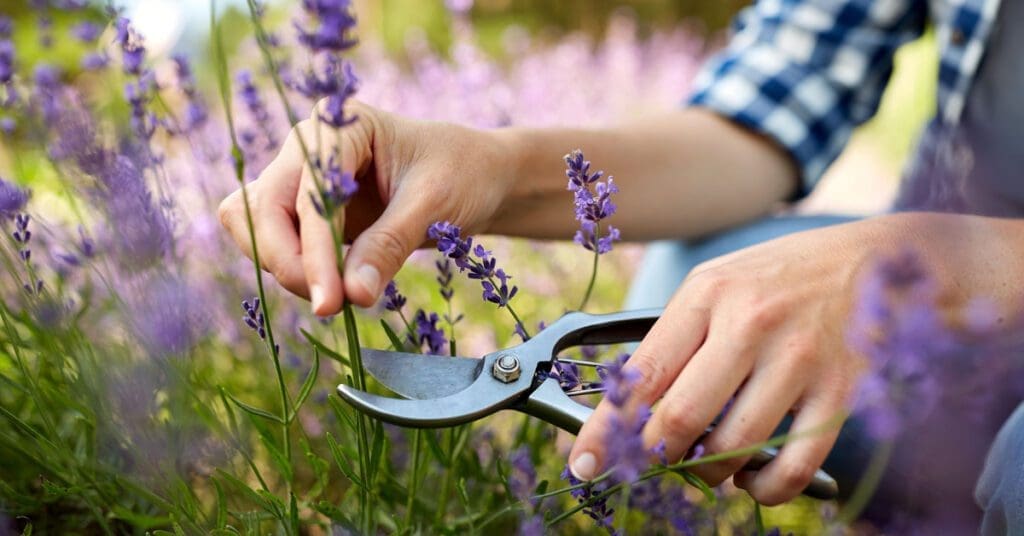
How can I use Medicinal Herbs from my Garden to Treat Pasteurized Milk Harm?
You can utilize your garden’s medicinal herbs to counteract pasteurization harms real milk. Herbs like ginger, turmeric, and cinnamon possess anti-inflammatory and antibacterial properties that can help neutralize the negative effects of pasteurization on the nutrients in milk. Simply infuse them into your diet or milk to reap their benefits.
Get started growing medicinal herbs today
Don’t wait another day to start planning which medicinal herbs you want to include in this spring’s homestead garden. The sooner you include them in your annual growing season, the sooner you can reap the benefits.
Do you have tips or questions about growing? Feel free to share them in the comments.
Happy harvesting!
Sources
- Advances in Pharmacological Activities of Terpenoids. journals.sagepub.com. Accessed March 30, 2023.
- Alkoloids Used as Medicines: Structural Phytochemistry Meets Biodiversity – An Update and Forward Look. ncbi.nlm.nih.gov. Accessed March 30, 2023.
- Anti-Inflammatory Effects of Curcumin in the Inflammatory Diseases: Status, Limitations and Countermeasures. ncbi.nlm.nih.gov. Accessed March 30, 2023.
- Chemistry, Pharmacology, and Medicinal Property of Sage. ncbi.nlm.nih.gov. Accessed March 30, 2023.
- Effect of Ginger on Inflammatory Diseases. ncbi.nlm.nih.gov. Accessed March 30, 2023.
- Enhancement of Innate and Adaptive Immune Functions by Multiple Echinacea Species. ncbi.nlm.nih.gov. Accessed March 30, 2023.
- Evaluation of an Aqueous Extract from Horseradish Root (Armoracia rusticana Radix) against Lipopolysaccharide-Induced Cellular Inflammation Reaction. ncbi.nlm.nih.gov. Accessed March 30, 2023.
- Important Flavonoids and Their Role as a Therapeutic Agent. ncbi.nlm.nih.gov. Accessed March 30, 2023.
- Lavender and the Nervous System. ncbi.nlm.nih.gov. Accessed March 30, 2023.
- Lemon balm. mountsinai.org. Accessed March 30, 2023.
- Medicinal Botany. fs.usda.gov. Accessed March 30, 2023.
In our kitchen, we only use cultures from Cultures for Health.
Get yours here and start culturing today.
Popular Articles
Newsletter
Get signed up to get latest updates and new information from the Jersey Milk Cow!
This site uses Akismet to reduce spam. Learn how your comment data is processed.



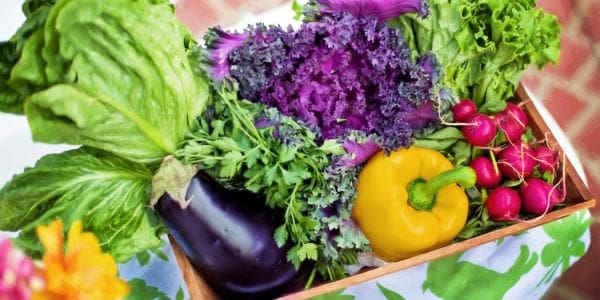
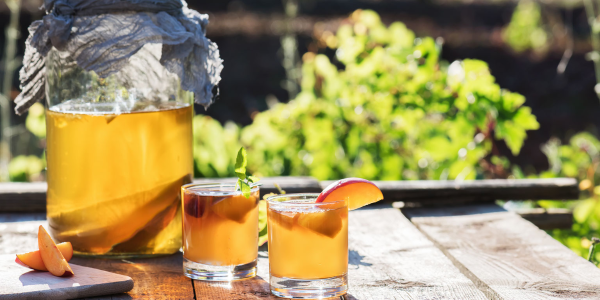
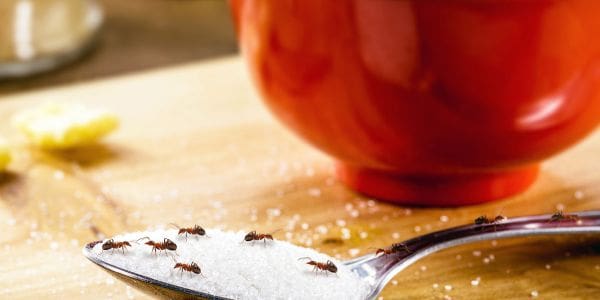




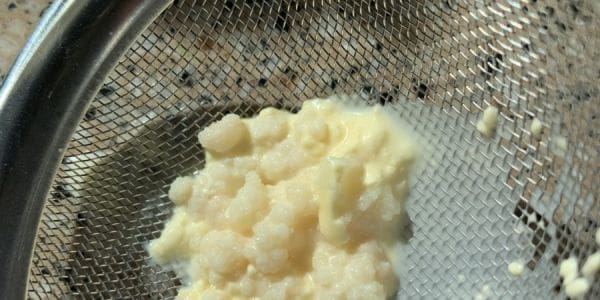

Leave a Reply